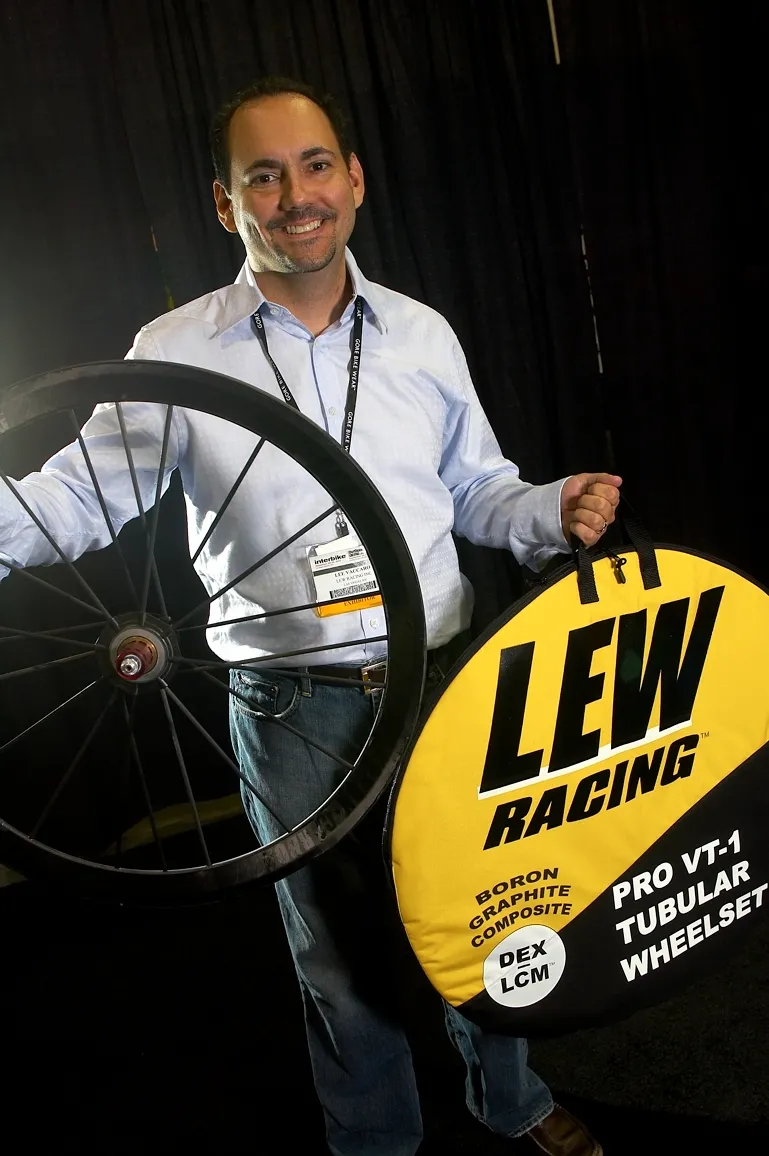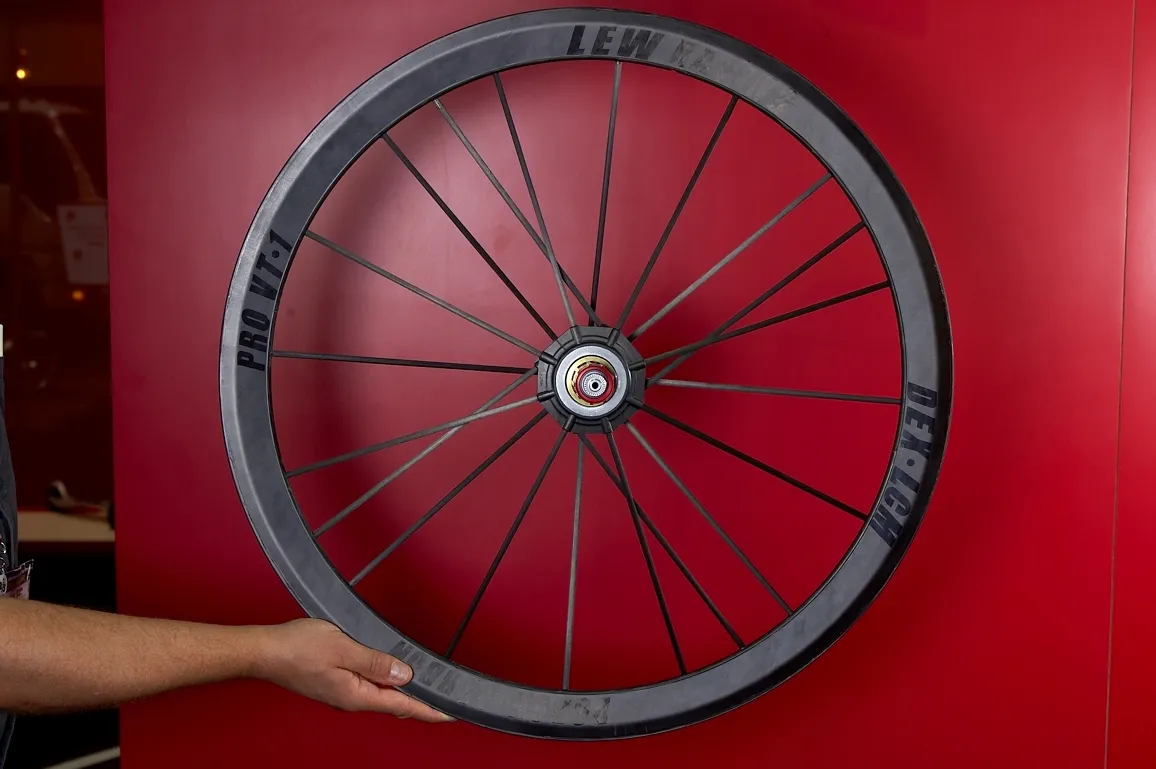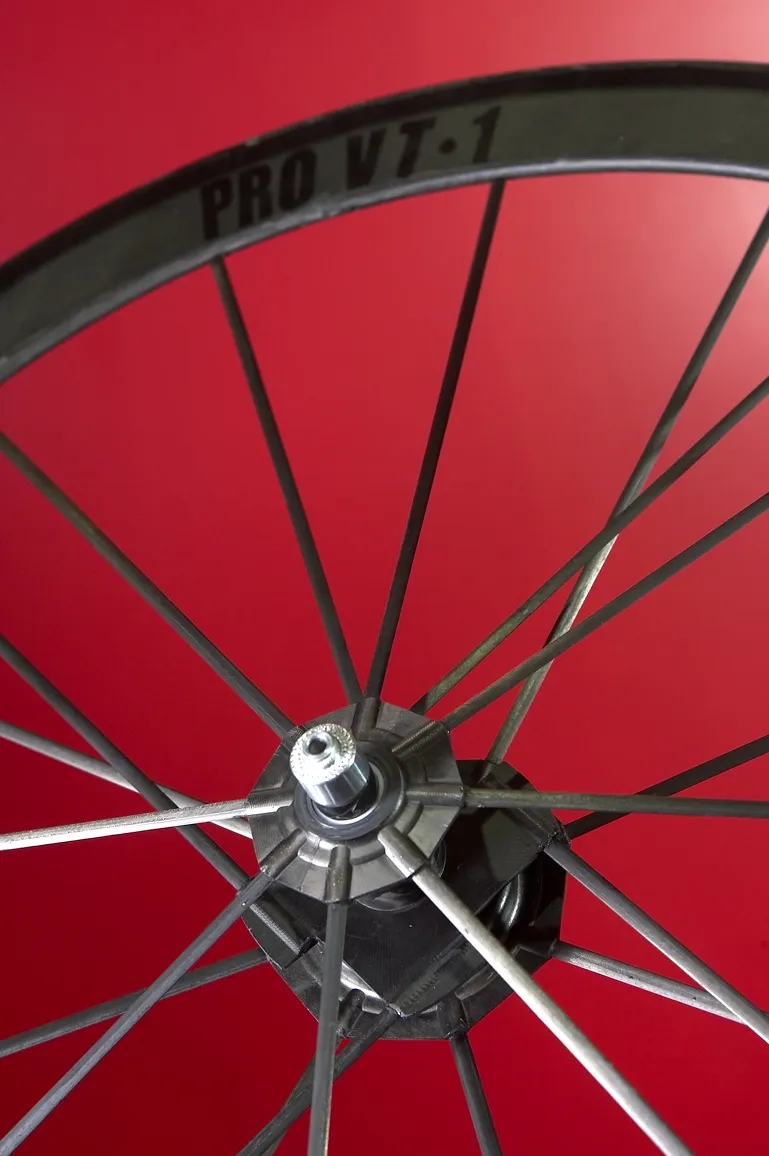Wheel manufacturer Lew Racing was showing its dramatically light new boron and carbon fiber Pro VT-1 tubular road wheels at Interbike.
Standard versions of the Pro VT-1 wheels weigh no more than 880g and per pair and cost USD6,000 but for ultimate gram-chasing Lew racing offers a custom build service that has so far built wheels down as light as 737g/pair. The company believes a 700g pair is possible for the right rider (likely a petite female!) A set of custom Pro VT-1s costs USD15,000.
Yes, you read that right. Fifteen. Thousand. Dollars.
For that you get a wheel tweaked to your individual weight and power output. Hand over your training records from your power meter and hop on the scales and Lew Racing's engineers will customize your wheels to be as light as possible.
One thing Lew won't do, though, is build an insanely light wheel for, say, hill-climbs only. Lew's Lee Vaccaro told BikeRadar that people tend to want to use their wheels all the time once they have a set, so the company is reluctant to push the limits.
Lew Racing achieves the extremely low weights of the Pro VT-1 by extensive use of boron, especially in the custom wheels, which have boron composite rim surfaces throughout. All variants have boron/carbon composite hub axles, hub shells and spokes, and it's the boron fibers that bring in the weight saving - and the cost.
"To save weight, you add more boron," says Vaccaro. Why is boron fiber expensive? Because, according to Richard M. J. Renneboog at sciencemaster.com each fiber of boron composite is made up of a very fine seed wire of tungsten with a boron coating applied by chemical vapour deposition from the reaction between boron trichloride and hydrogen gas at between 800 and 2000 Celsius. This is an expensive process and the fibers can only be made into uni-directional tapes: they are too stiff to weave.
But they are stiffer and stronger than carbon fibers and therefore perfect for components for weight-obsessed bike riders, or at least ones with deep pockets.
Boron fiber is not just about weight though. The VT-1s use a boron fiber brake track and that has the advantage of behaving like an aluminium brake track when you push a brake pad against it.
Lew Racing also offers a clincher version, the Pro VC-1 at 970g/pr, and a Clydesdale version, Pro VT-1C, for riders between 185lb (the weight limit for the Pro VT-1s) and 250lb.
There are no plans for a mountain bike version, though we wonder how long it will be before someone presses a set of Pro VC-1s into use on a 29er. >


